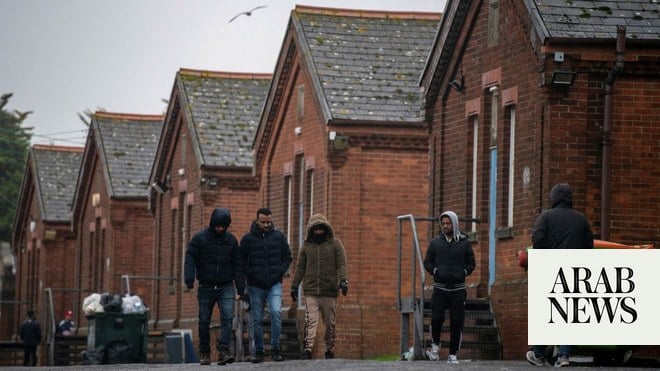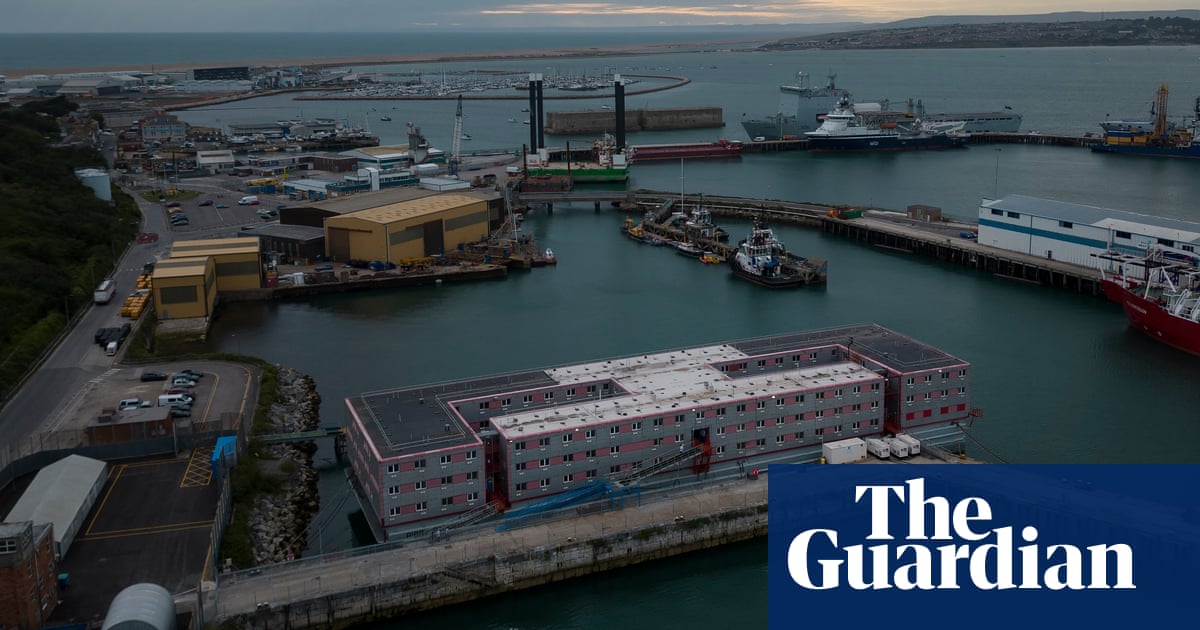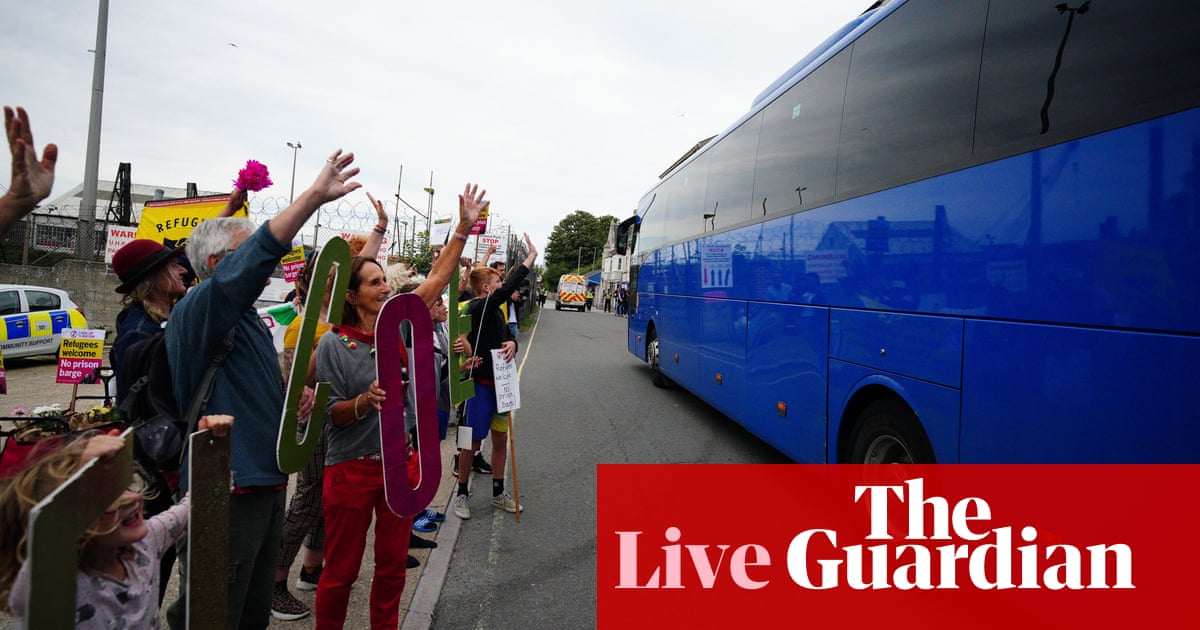
LONDON, PARIS: A British navy ship was preparing on Thursday to patrol the Channel in response to a wave of mostly Iranian asylum seekers risking the crossing from France in dinghies.
An Iranian and a British national have been arrested on suspicion of facilitating illegal migration across the Channel, the world’s busiest shipping lane.
Attempts to get to Britain aboard small craft have surged in the last three months, with numbers spiking over the Christmas holidays.
The offshore patrol vessel HMS Mersey — currently in the Channel port of Portsmouth — was “available and ready” to be deployed, a Ministry of Defense source told the domestic Press Association news agency.
A Defense Ministry spokesman told AFP: “Our armed forces stand ready to provide additional capacity and expertise to assist the Home Office with the response to migrant crossings.
“Royal Navy ships continue to conduct patrols to protect the integrity of UK territorial waters.”
Some 539 people crossed the Strait of Dover — the Channel’s narrowest part at 33 km wide — in 2018. Eighty percent made the journey in the last three months, said Home Secretary Sajid Javid, the interior minister.
Almost all those who have made it to Britain have requested asylum, Javid said Wednesday, but he questioned whether someone who had left the safety of France could be a “genuine asylum seeker.”
He immediately faced a barrage of criticism from opposition MPs.
Javid said any migrants picked up in British waters would be taken to a UK port.
Meanwhile a 33-year-old Iranian national and a 24-year-old British man were arrested in Manchester, northwest England, on Wednesday “on suspicion of arranging the illegal movement of migrants across the English Channel into the UK,” a National Crime Agency spokeswoman said.
The investigation is ongoing.
Britain is redeploying two Border Force cutters from the Mediterranean in response to the situation.
The Sunday Times newspaper, reporting from a migrant camp on the French coast, said a growing number of well-educated Iranians were attempting the Channel crossing. It cited Ali, 34, a car salesman from Tehran, as saying his journey from the Iranian capital to Britain would end up costing £15,000 ($18,900), with payments in stages to a Kurd-dominated people-smuggling gang.
Migrant report
The number of migrants who died or went missing attempting to cross the Mediterranean fell by more than a quarter in 2018 over the previous year, to 2,262, the UN refugee agency said Thursday.
The number of migrants who arrived in Europe after surviving the sea crossing also dropped by roughly the same proportion last year to 113,482 after 172,301 in 2017, according to the UNHCR’s full-year figures.
A total of 3,139 were reported dead or missing in 2017.
“The Mediterranean has been for years the most deadly sea crossing in the world for refugees and migrants,” UNHCR spokeswoman Celine Schmitt told AFP in Paris.
The data also confirmed that Spain had become the main gateway into Europe for migrants and refugees who travel from north Africa, with 55,756 people registered as arriving there by sea in 2018.
Italy, under its hard-line anti-immigration government, cut the number of arrivals dramatically last year to 23,371 — around a fifth of the number who arrived in 2017 when 119,369 crossed from Libya.
All of the figures are far down from their peak in 2015 when an estimated 1 million people crossed the Mediterranean to Europe, mostly from Turkey into Greece.
The effects of that influx continue to reverberate around the continent, sparking debate about immigration policies and fueling far-right parties in countries that have welcomed large numbers of refugees, such as Italy, Germany and Sweden.
Rescue boats carrying migrants also sparked repeated flareups among European countries in 2018 after Italy’s populist government closed its ports to charity-run ships which pick up stranded migrants.
The EU has been working with north African countries, particularly conflict-wracked Libya, by offering aid money and help with border patrols in a bid to stem the flow of people.
The EU has also financed border protection and development projects in other impoverished African states that are a source of migrants or serve as transit routes.
The largest group of migrants who arrived in Europe in 2018 came from the west African state of Guinea (13,068) followed by Morocco (12,745) and Mali (10,327).
Syrians were the fourth biggest group (9,839), followed by Afghans (7,621) and Iraqis (7,333).












